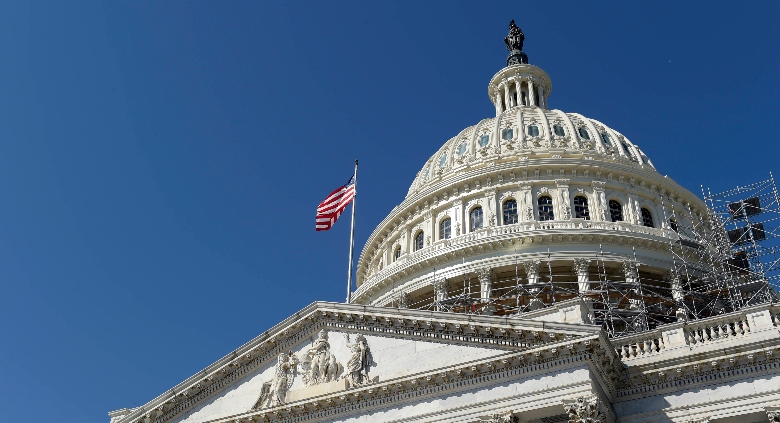In a move sparking outrage among voters, Congress has quietly slipped two controversial provisions into their latest continuing resolution (CR): a pay raise for lawmakers and an opt-out from the Affordable Care Act (ACA), commonly known as Obamacare. The 4,000-page bill, packed with funding for essential government operations, includes these self-serving measures that benefit the very officials tasked with serving the public.
Since 2009, Congress has consistently blocked cost-of-living adjustments (COLA) for its members by embedding restrictive language into spending bills. This decision came amid economic struggles and public outcry over government excess. While other federal employees have continued to receive annual COLA increases, lawmakers froze their own salaries at $174,000 annually. Now, in a sly and largely unnoticed maneuver, Congress has included language on page 15 of the latest CR that reverses this policy, paving the way for potential salary increases.
For years, some members of Congress have argued that the salary freeze discourages qualified individuals from entering politics, citing the high cost of living in Washington, D.C. In 2022, lawmakers introduced a program reimbursing members for lodging and meal expenses in the capital. Despite this measure, dissatisfaction over their stagnant salaries persists among certain factions in Congress. According to a report by the Congressional Research Service, had lawmakers received annual COLA adjustments, their 2024 salary would now stand at approximately $243,300—a significant jump from their current earnings.
Critics argue that this pay raise represents a tone-deaf move at a time when many Americans are grappling with inflation, rising costs, and economic uncertainty. “This is a slap in the face to every hardworking taxpayer,” said one political analyst. “While families are tightening their budgets, Congress is quietly rewarding itself with a raise.”
Adding fuel to the fire, the CR also includes a provision allowing members of Congress to sidestep Obamacare and return to the Federal Employees Health Benefits Program (FEHBP). This change undermines a key aspect of the ACA—a law that originally required lawmakers and certain government officials to use the same health insurance exchanges as their constituents. The intention behind this mandate was to ensure that elected officials would experience the same benefits and challenges as ordinary Americans navigating the healthcare system.
The exemption from Obamacare was not included in earlier drafts of the bill’s health title. It was inserted into the final version of the CR, which was released late Tuesday evening, catching even some Democratic leaders by surprise. “This wasn’t part of the original discussion,” one senior official commented anonymously, adding that the move is likely to reignite debates over the fairness of healthcare policies.
Opponents of this provision argue that it sends a troubling message: lawmakers are above the very laws they create for the public. “The ACA was supposed to be a great equalizer, ensuring that everyone—including Congress—shared in the system,” said a healthcare policy expert. “By opting out, Congress is essentially admitting that the system is flawed.”
Proponents of the FEHBP exemption contend that the ACA exchanges do not adequately address the unique needs of lawmakers and their staff, particularly given the complexities of their employment arrangements. They argue that returning to FEHBP provides more stability and better options for government officials. However, this rationale has done little to appease critics, who view the move as self-serving and out of touch.
The controversy surrounding these provisions is compounded by the timing and lack of transparency in their inclusion. The continuing resolution, a must-pass bill to avoid a government shutdown, often serves as a vehicle for last-minute legislative add-ons. By attaching these measures to a critical funding bill, Congress has effectively shielded them from standalone debate and public scrutiny.
Public reaction to the revelations has been swift and harsh. Social media platforms have been flooded with criticism, with many accusing lawmakers of prioritizing their own interests over those of their constituents. “While we struggle to make ends meet, Congress is giving itself a raise and better healthcare,” one voter tweeted. “This is why people have lost faith in government.”
As the CR heads toward final approval, calls for accountability and reform are growing louder. Advocacy groups and watchdog organizations are urging voters to contact their representatives and demand explanations for these controversial provisions.
The inclusion of a pay raise and an Obamacare opt-out in the CR has reignited longstanding debates about the perks and privileges enjoyed by members of Congress. With trust in government already at historic lows, this latest revelation is unlikely to help. As voters prepare for the next election cycle, lawmakers may find themselves under increased scrutiny for these decisions that prioritize personal gain over public service.


How about ALL MEMBERS OF CONGRESS live in DORMITORY HOUSING WITH ZERO EXEMPTIONS?
4 to a Dorm room and all rooms share by opposing party members.
ALL MEALS eaten at the Dorm and all travel to and from by air from the nearest Regional Airport.
Now that all their housing and meals are taken care of, as well as travel to and from, let’s examine just HOW MUCH do they really NEED?
Every member of Congress who voted yes on this bill deserves one good kick in the arsh. and I’m being nice….
Congress is a part time job since they are only scheduled to work 65% of the yearly M-F work days. They take off for holidays, weekends, and also get approx 2.5 months a year just to go home which brings the total of non work days to approx 109 days a year. Part time=1/3 of the year off from work. We also pay them when they are campaigning to keep their job. If they want to campaign, do it at night and on weekends. They also have staffs, which we pay for, to do their work for them and all they have to do is show up at meetings and espouse what their staff put out there for them. Cushy job if you ask me. Since they are part time why are they getting benefits paid for by us. No American citizen gets these perks for working part time, but only congress thinks they are worthy while running the country into bankruptcy! If they don’t like the pay, QUIT!!